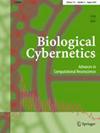描写文本写作的教学方法(以泰米什拉姆基础学校2023学年七年级学生为例)
IF 1.6
4区 工程技术
Q3 COMPUTER SCIENCE, CYBERNETICS
引用次数: 0
摘要
& # x0D;& # x0D;& # x0D;& # x0D;本研究调查了英语教师在2023学年对Thammislam基础学校七年级学生进行描述性写作教学的教学方法。英语老师在指导Thammislam基础学校2023学年的七年级学生写作描述性文本时遇到了哪些挑战?研究目标分为三个不同的领域:写作、描述性文本和英语教师使用的教学方法。本研究采用描述性定性研究设计。研究人员扮演了一个非参与者观察者的角色。研究者在七年级的课堂上进行了三次观察,并采访了一位英语老师,以收集有关描述性写作教学方法的信息。所观察的人口包括2023学年在Thammislam Foundation School就读七年级的28名学生。本研究中使用的数据收集工具包括观察、访谈和相关研究文件的检查,包括模块、学生工作表和课程材料。研究人员采用了三步法来分析数据。研究过程的三个主要组成部分包括数据简化、数据显示和结论验证。研究人员采用三角测量作为提高数据可信度的一种手段。研究结果表明,教师在最初和随后的会议中所进行的活动符合任务型语言教学的原则和框架。在课堂上实施任务型语言教学通常包括三个不同的阶段:任务前阶段、任务周期阶段和语言焦点阶段。这名学生遇到的挑战包括词汇量有限,需要更熟练地选择合适的动词来造句。老师布置了练习,以提高学生的词汇量和在每个句子中选择合适动词的熟练程度。用于任务的模型是根据它们准确匹配给定标准的能力来评估的。此外,讲师采用了系统的方法来促进学生的理解,特别是在编写描述性文本的背景下。 & # x0D;& # x0D;& # x0D;本文章由计算机程序翻译,如有差异,请以英文原文为准。
Teaching Method In Writing Descriptive Text (A Descriptive Study at the Seventh Grade Students of Thammislam Foundation School Academic Year 2023)
This study investigates the instructional approach English teachers employ in teaching descriptive writing to seventh-grade students at Thammislam Foundation School during the Academic Year 2023. What challenges does the English teacher encounter when instructing seventh-grade students at Thammislam Foundation School during the Academic Year 2023 in the area of writing descriptive texts? The research objectives are categorized into three distinct areas: writing, descriptive text, and the instructional methods employed by English teachers. The present study employed a descriptive qualitative research design. The researcher assumed the role of a non-participant observer. The researcher conducted three observations in a seventh-grade classroom and interviewed with an English teacher to gather information about the instructional methods employed in teaching descriptive writing. The observed population comprises 28 students enrolled in the seventh grade at Thammislam Foundation School during the academic year of 2023. The data collection instruments employed in this study encompassed observation, interviews, and the examination of relevant study documents, including modules, student worksheets, and curriculum materials. The researcher employed a three-step process to analyze the data. The three main components of the research process include data reduction, data display, and conclusion verification. Researchers employ triangulation as a means to enhance the trustworthiness of the data. The research findings indicate that the activities conducted by the teacher during the initial and subsequent meetings were consistent with the principles and framework of task-based language teaching. Implementing task-based language teaching in a classroom typically involves three distinct stages: the pre-task stage, the task cycle, and the language focus stage. The challenges encountered by the student included a limited vocabulary and a need for more proficiency in selecting appropriate verbs for constructing sentences. The instructor assigned exercises to enhance the students' vocabulary and proficiency in selecting the appropriate verb for each sentence. The models used for the tasks were evaluated based on their ability to match the given criteria accurately. In addition, the instructor employed a systematic approach to facilitate comprehension among the students, particularly in the context of composing descriptive texts.
求助全文
通过发布文献求助,成功后即可免费获取论文全文。
去求助
来源期刊

Biological Cybernetics
工程技术-计算机:控制论
CiteScore
3.50
自引率
5.30%
发文量
38
审稿时长
6-12 weeks
期刊介绍:
Biological Cybernetics is an interdisciplinary medium for theoretical and application-oriented aspects of information processing in organisms, including sensory, motor, cognitive, and ecological phenomena. Topics covered include: mathematical modeling of biological systems; computational, theoretical or engineering studies with relevance for understanding biological information processing; and artificial implementation of biological information processing and self-organizing principles. Under the main aspects of performance and function of systems, emphasis is laid on communication between life sciences and technical/theoretical disciplines.
 求助内容:
求助内容: 应助结果提醒方式:
应助结果提醒方式:


